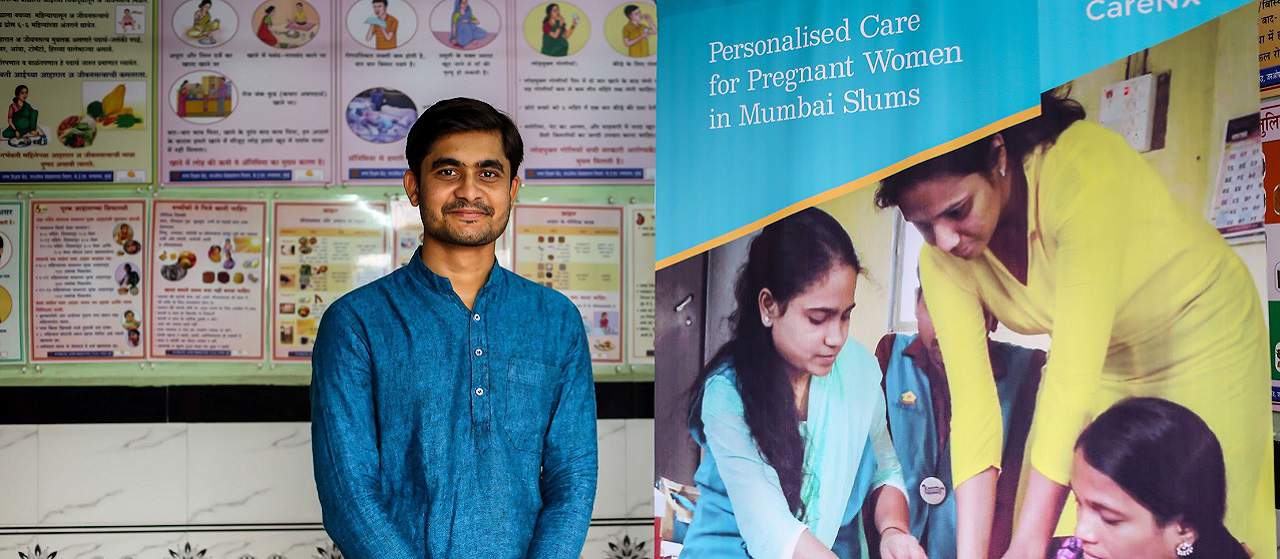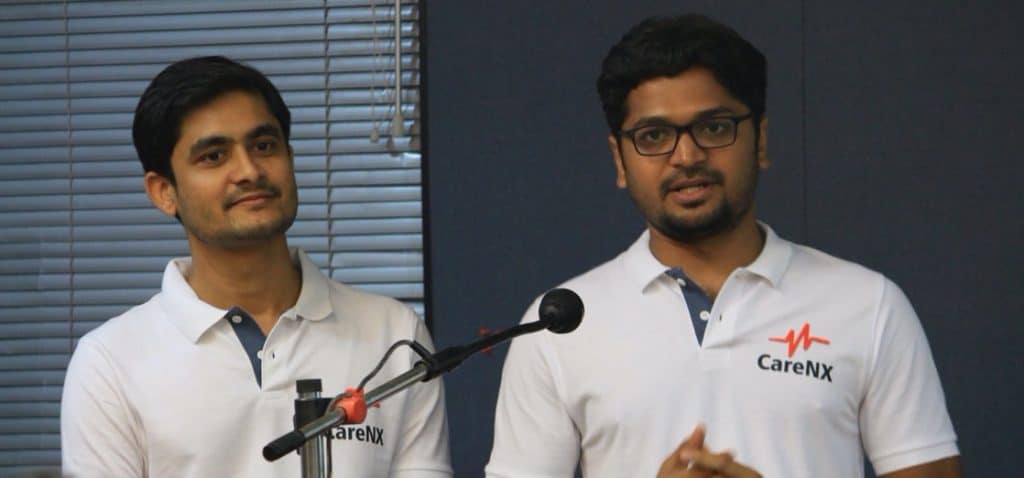
According to UNICEF, it is estimated that 44,000 women die due to preventable pregnancy-related causes in India each year while one in five deaths globally is likely to be an Indian lady. Aditya Kulkarni, a 2017 Young Global Changer, and the organisation he co-founded is working to change this.
Inspired by a close friend’s sister who suffered a miscarriage due to pregnancy-related complications, Aditya and his business partner Shantanu Pathak, “realised the ground level need for an innovative solution to this grave problem and the idea of CareMother was born in 2015 to enhance the exiting service delivery through technological intervention.”
A possible solution against pregnancy-related complications
Together, Aditya and Shantanu have developed a mobile-based support program that can be used by health workers to help predict pregnancy complications at an early stage. This enables “health workers to make informed decisions and refer mothers for timely intervention, improving maternal and neonatal outcomes.” The technology was developed based on World Health Organization guidelines.
The app is not intended to be a complete replacement for sonography tests, but it still serves a very important function and can be used to reach out to women in marginalised communities. An article about the app The Better India notes “Women belonging to underprivileged communities, be it in the slums or the rural areas, often miss regular check-ups at the health camps. A major reason for this shortcoming is low awareness among the communities, leading to a lot of maternal deaths, many of which could be averted if diagnosed at the right time.”
With a vision to serve three million pregnant Indian women over the next five years, Aditya and Shantanu have bold plans but their success to date has already been widely recognised. Her Majesty the Queen of England, India’s Prime Minister Narendra Modi and prestigious organisations and institutions including Google, the United Nations, Cisco, MIT and Vodafone (amongst many others) have all recognised the technology’s potential and ability to make a widespread and positive impact across India.

Rapid technology advances are also having a substantial impact and are already helping to challenge the current status quo. Aditya suggests this will help “democratise power/ control at all levels which will result in [the] proliferation of necessary services to improve human quality of life at economic, social and cultural levels.” For 2,500 Rupees (approx. USD35), which is less than what many people spend on a Sunday dinner, individuals and organisations can ‘Adopt a Mother’ and allow CareMother to provide complete antenatal check-ups and a doctor’s consultation to a mother from a remote village/ slum area throughout the 9 months of her pregnancy. “Wouldn’t it be worth it?” Aditya questions.
Despite their impressive growth and rollout – their technology is currently present in 11 Indian states with “more than 25 partners and hospitals” and has already served over 35,000 pregnant women with the objective of serving more than 100,000 in 2020 – there have also been challenges. According to Aditya, “working with government systems at scale is challenging” as has been the need to ensure they have a “sustainable model of implementation and operations” before scaling up. Learning from past mistakes, a preference has been developed for “lean models of execution” which allow flexibility, quick adaptation and an opportunity to scale up. Furthermore, developing and implementing pilot projects can help with “perfecting” the distribution model.
Working in partnership for innovative ideas
Both business partners recognise they can achieve far more working in partnerships than they can do going at it alone: “We believe everyone can be a part of our mission” to help overcome maternal and neonatal health challenges across India! Already working with a range of partners from the public, private and non-profit sectors, they are striving to help “make the voices of young people heard at the global level.” Aditya notes that reaching out to the most disadvantaged (who are often also un-served or under-served), “requires different ways of service delivery which might need exclusive policy considerations to be economically efficient.”
As a Young Global Changer, Aditya, and his business partner have worked to develop and implement an innovative idea to bring about positive change at a local and national level. While he is the first to acknowledge that there is a long way to go, and pregnant women across India still experience great challenges, he is “very hopeful” for the future.
His suggestions for bringing about lasting global change include nurturing local businesses through funding, mentoring and networking support; widely sharing knowledge related to successful projects and solutions and “making voices of young people heard at the global policy level.”
Written by Ken Fullerton, YGC 2017.
___
The views and opinions expressed in this article are those of the authors and do not necessarily reflect the views of the Global Solutions Initiative.
___

Aditya, is an innovator and tech entrepreneur from India. He is widely recognized as G20 Young Global Changer 2017, Queen’s Young Leader 2018 and TEDx Speaker at the International level for his innovations in the healthcare sector. He has studied Executive Leadership at the University of Cambridge UK. Presently, he is a Co-founder & Executive Director of CareNX Innovations Pvt. Ltd. Mumbai
 Ken, a 2017 Young Global Changer, currently works as a management consultant for ARTD Consultants – one of Australia’s leading public policy consulting firms – where he helps government agencies and non-profit organisations make evidence-informed decisions and track and evaluate outcomes in order to continuously improve their performance.
Ken, a 2017 Young Global Changer, currently works as a management consultant for ARTD Consultants – one of Australia’s leading public policy consulting firms – where he helps government agencies and non-profit organisations make evidence-informed decisions and track and evaluate outcomes in order to continuously improve their performance.
